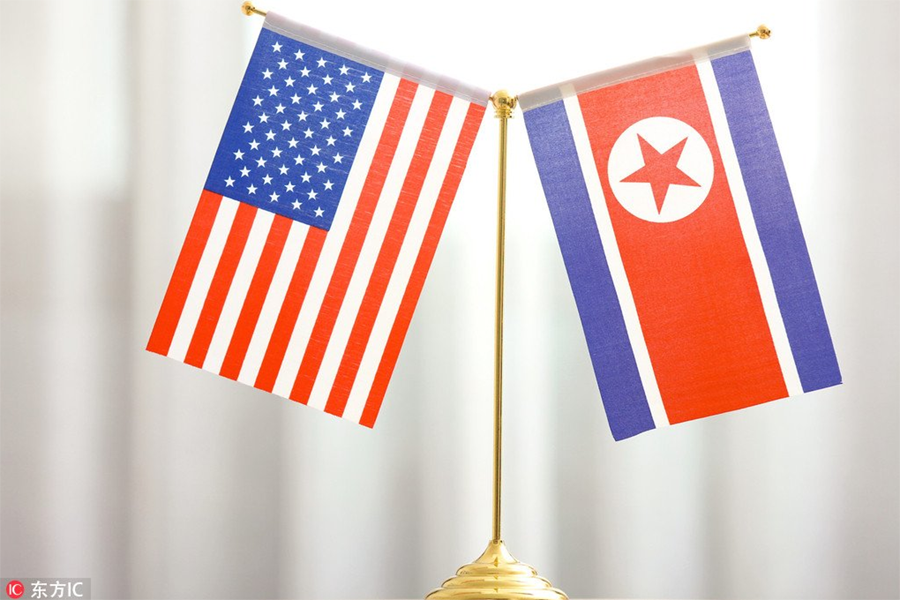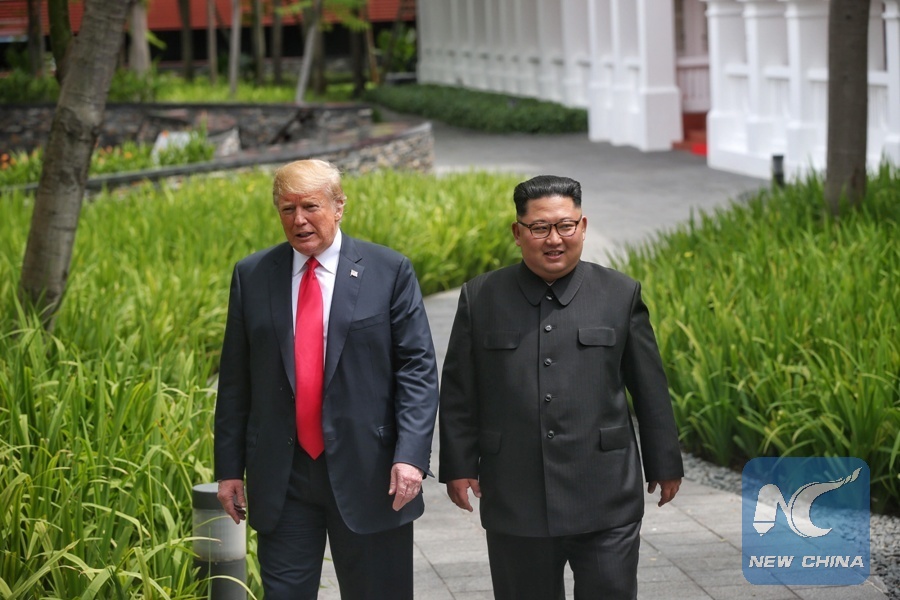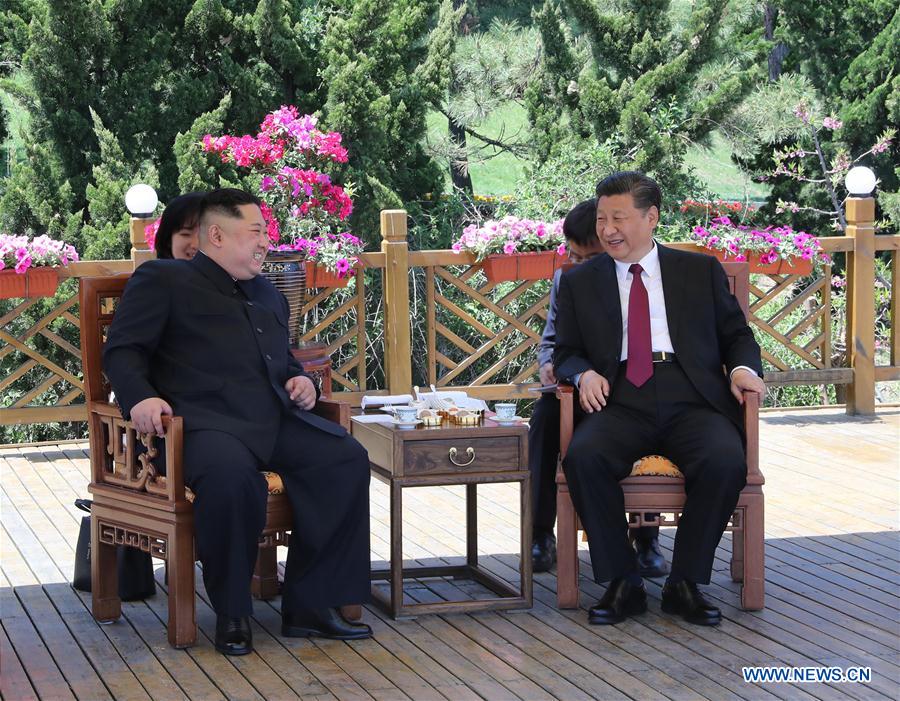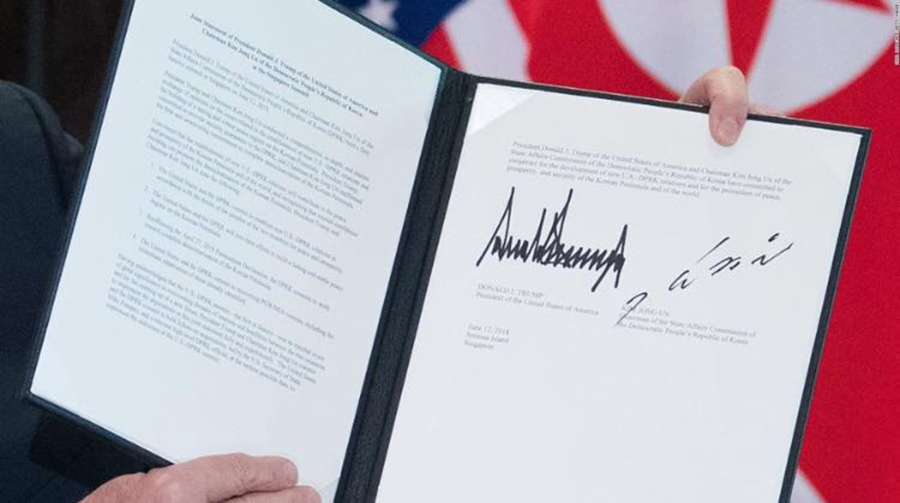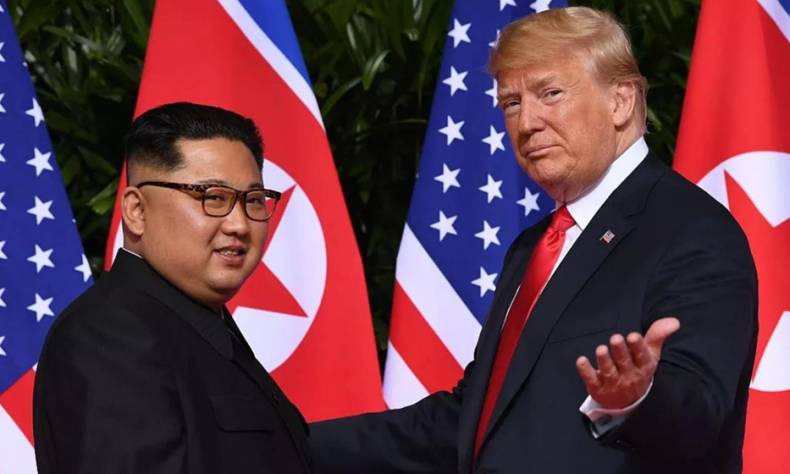
Good Start, but Bumpy Road Ahead
The historic Kim-Trump summit in Singapore on Tuesday has attracted worldwide attention. But the top-down start would really need multi-party support if the commitments of the communiqué are to be realized.
By Xu Fangqing
The historic Kim-Trump summit in Singapore on Tuesday has attracted worldwide attention. But the top-down start would really need multi-party support if the commitments of the communiqué are to be realized. China, as one of key stakeholders, will play the key role in supporting any subsequent negotiations by building the trust bridge between the Democratic People’s Republic of Korean and United States.
The Lengthy and Difficulty Road Ahead
The meeting is undoubtedly a big step for the DPRK-US bilateral relations and peace on the Korean Peninsula. Some may question the scant tangible achievements in the joint statement, but the handshake itself indicates much more. The summit itself confirmed the dual wish for peace, while DPRK considers its national security as the priority, and the US is concerned about the potential threat of nuclear warheads. Though there is no specific procedure for the DPRK’s “complete denuclearization” and the easing of sanctions by the US, the Singapore summit represents a cordial start for further talks and some level of consensus on both sides.
However, we can also foresee a lengthy and difficulty road ahead to reach peace and prosperity on the Korean Peninsula. The initial and formidable challenge would be mutual trust between two long-term adversaries, following a process that has seen many previous setbacks in similar agreements.
China will therefore play a vital role as a junction connecting the US and DPRK and narrowing the faith gap. The tremendous differences in political systems and state power mean a vast imbalance in building up mutual trust between US and DPRK. Multilateral efforts and long vision in the region will be essential to ensure progress in the commitments. In addition to China, South Korea, Japan and Russia will be involved in the detailed solution towards a nuclear-free peninsula.
Δ Top leader of the Democratic People’s Republic of Korea (DPRK) Kim Jong Un (R) and U.S. President Donald Trump take a walk during their summit meeting in Singapore
on June 12, 2018. (Xinhua/Ministry of Communication and Information of Singapore)
Uncertainties in the US
The leader of DPRK, Kim Jong Un, is thought to be the one who has steered the situation from the beginning. He showed a high degree of sincerity and anticipation concerning the meeting, as the DPRK halted all missile tests, released three Americans, and dismantled one of its missile launching sites. The concerns for national security from the Korean state are much sharper than the worries from the US. The lukewarm reaction to and criticism of the final communiqué in US also prove that the initiative still faces uncertainties in the US.
The uncertainties of US side coming from the upcoming mid-term elections, the confrontations between different political factions, and the unorthodox president himself will challenge the subsequent implementation of the US-DPRK agreements, and a change in the political situation could easily derail the whole peace process.
Δ Xi Jinping (R), general secretary of the Central Committee of the Communist Party of China (CPC) and Chinese president, holds talks with Kim Jong Un, chairman of the Workers’ Party of Korea (WPK) and chairman of the State Affairs Commission of the Democratic People’s Republic of Korea (DPRK), in Dalian, northeast China’s Liaoning Province, on May 7-8. (Xinhua/Ju Peng)
China’s Role in the Trump-Kim Summit
China has long asserted that it should make a greater effort to ensure the two targets—denuclearization and stability—in the region. A stable and nuclear-free Korean Peninsula is in China’s interests. It is all the more essential for China’s national security and geopolitical strategy, considering recent Sino-US trade tensions and the fundamental switch of US attitude towards China based on its new National Security Strategy document, in which US describes China as a “rival power”.
China now is eager to secure its neighboring regions and safeguard a stable and nuclear-free northeastern Asia in accordance with China’s core interests. On the one hand, it would defuse a possible nuclear arsenal race around China should the DPRK becomes a nuclear state. On the other, peace in the region would improve relations between China and countries like South Korea and Japan, the traditional US allies, as they share the same demands of the region. Thus it would reduce geopolitical pressure and interference from US in regional issues.
Two exceptional Sino-Korean leaders meetings within a short time and the Sino-US leaders hotline before the Singapore summit, has shown to the world how much effort China is investing. The role China has shouldered here is indispensable and should be sustainable. The fact that China provided the DPRK leader’s jet airplane for this summit also indicates the key guarantor role China plays in dealing with the regional issue.
Δ The joint statement inked by top leader of the Democratic People’s Republic of Korea (DPRK) Kim Jong Un and U.S. President Donald Trump in Singapore on June 12, 2018.
Now the First Step Has Been Taken…
Dan Balz of the Washington Post correspondent expressed his doubt on the outcome of the summit when he wrote that “communiqué that was longer on talk of peace and prosperity than on commitments by North Korea to get rid of its weapons.” But the symbolism of this summit is also important, as it could create more leeway for subsequent negotiations; it is unreasonable to anticipate too much from a single meeting that itself was almost cancelled.
Now a first step has been taken and the common requirements of the sides involved can be used to embark on the concrete actions. But harmonizing the differences and synchronizing the demands from the regional stakeholders will be a challenge.
Xu Fangqing, is a non-resident fellow with Center for China and Globalization(CCG), a Beijing-based independent think tank, and a senior editor at China News Week.
Editor: Cai Hairuo
Opinion articles reflect the views of their authors, not necessarily those of China Focus
 Facebook
Facebook
 Twitter
Twitter
 Linkedin
Linkedin
 Google +
Google +
